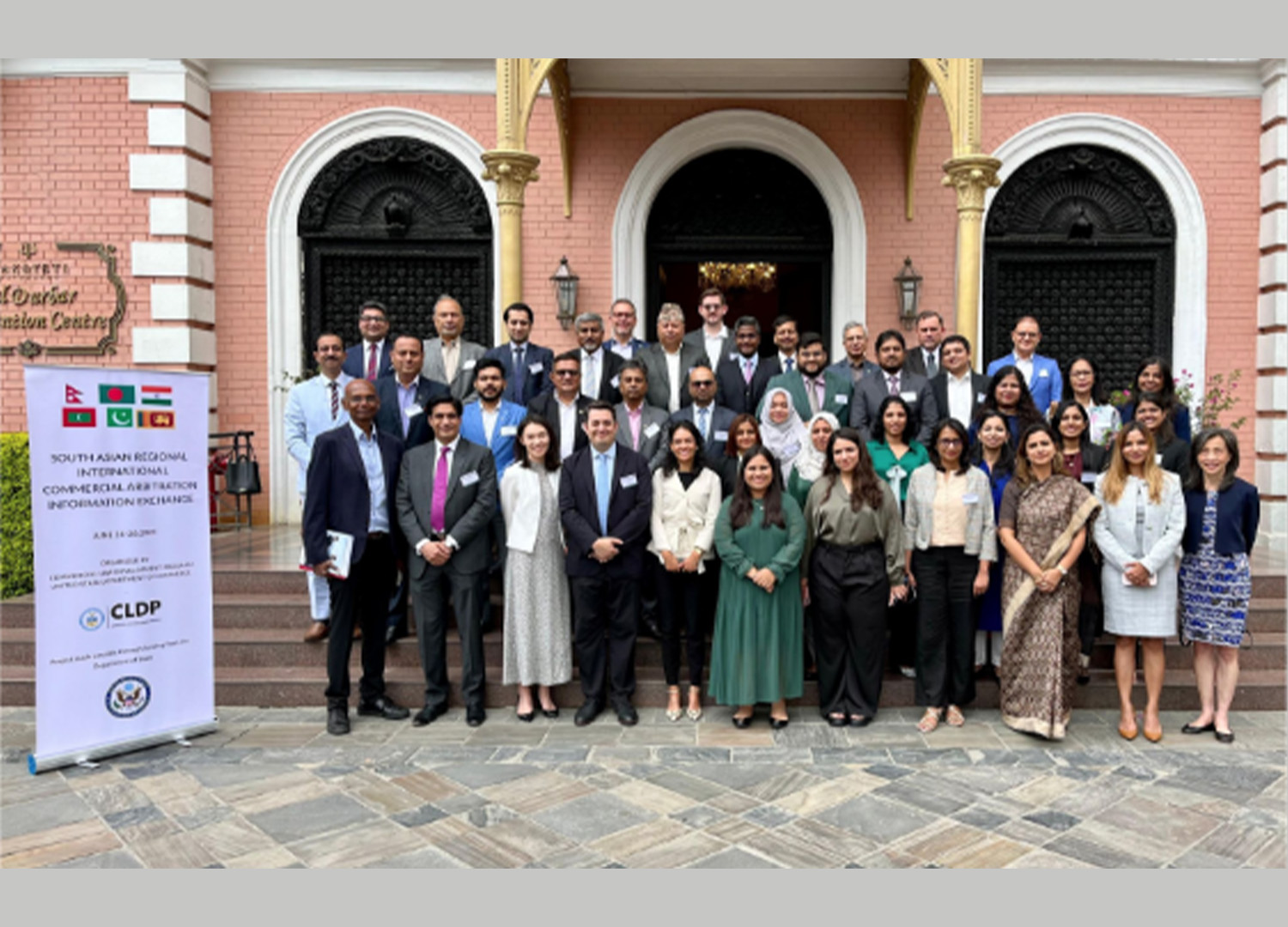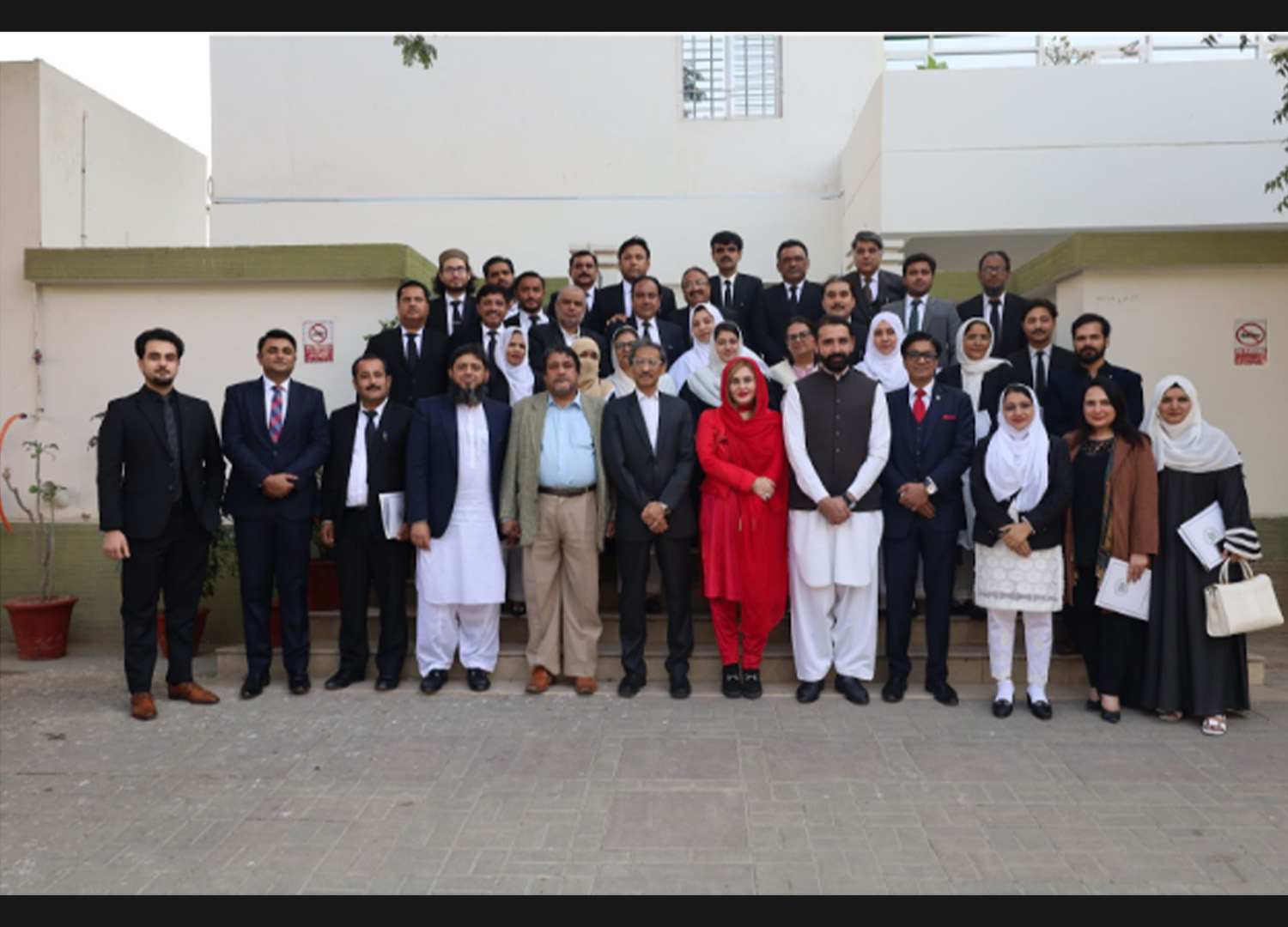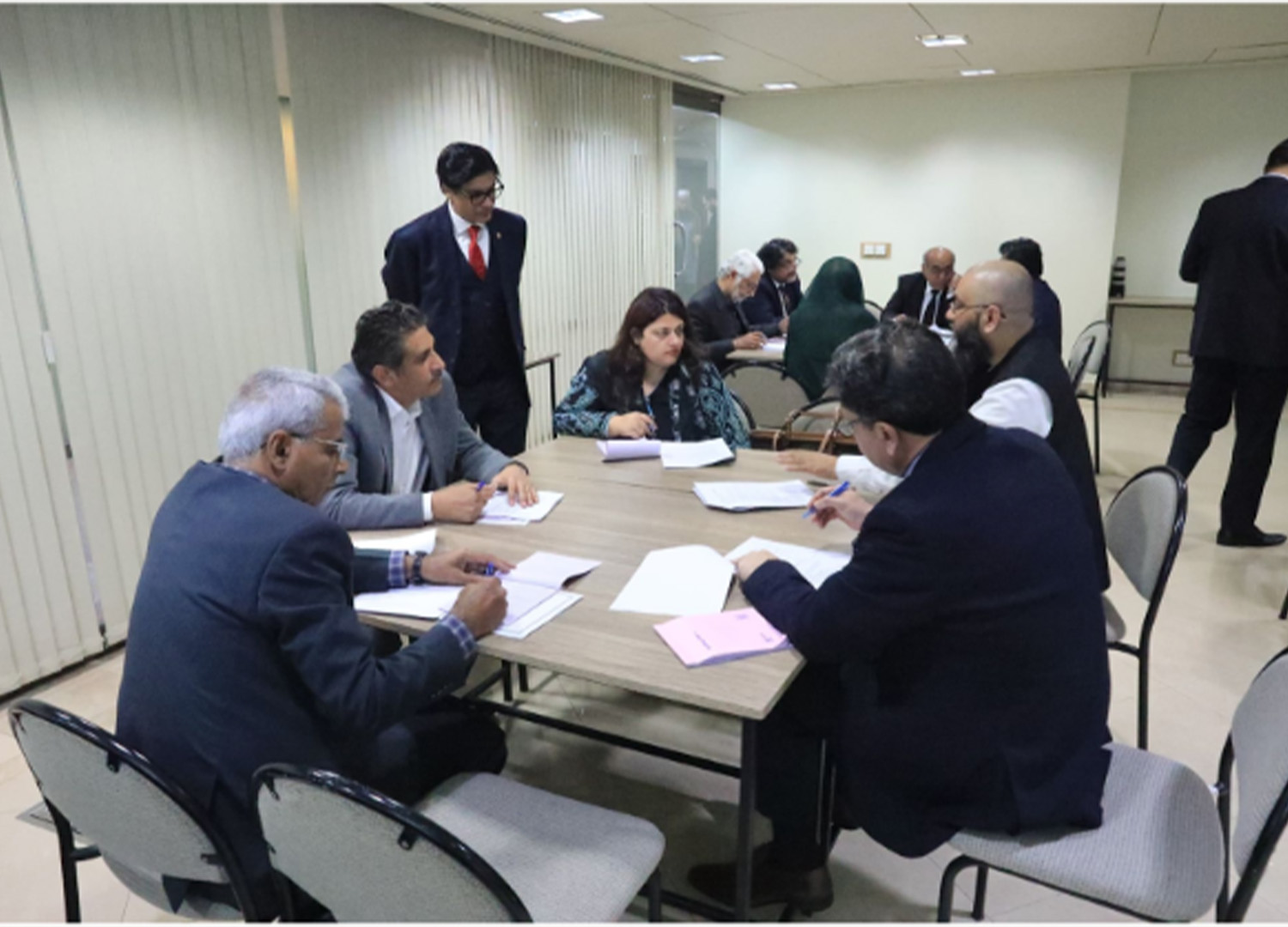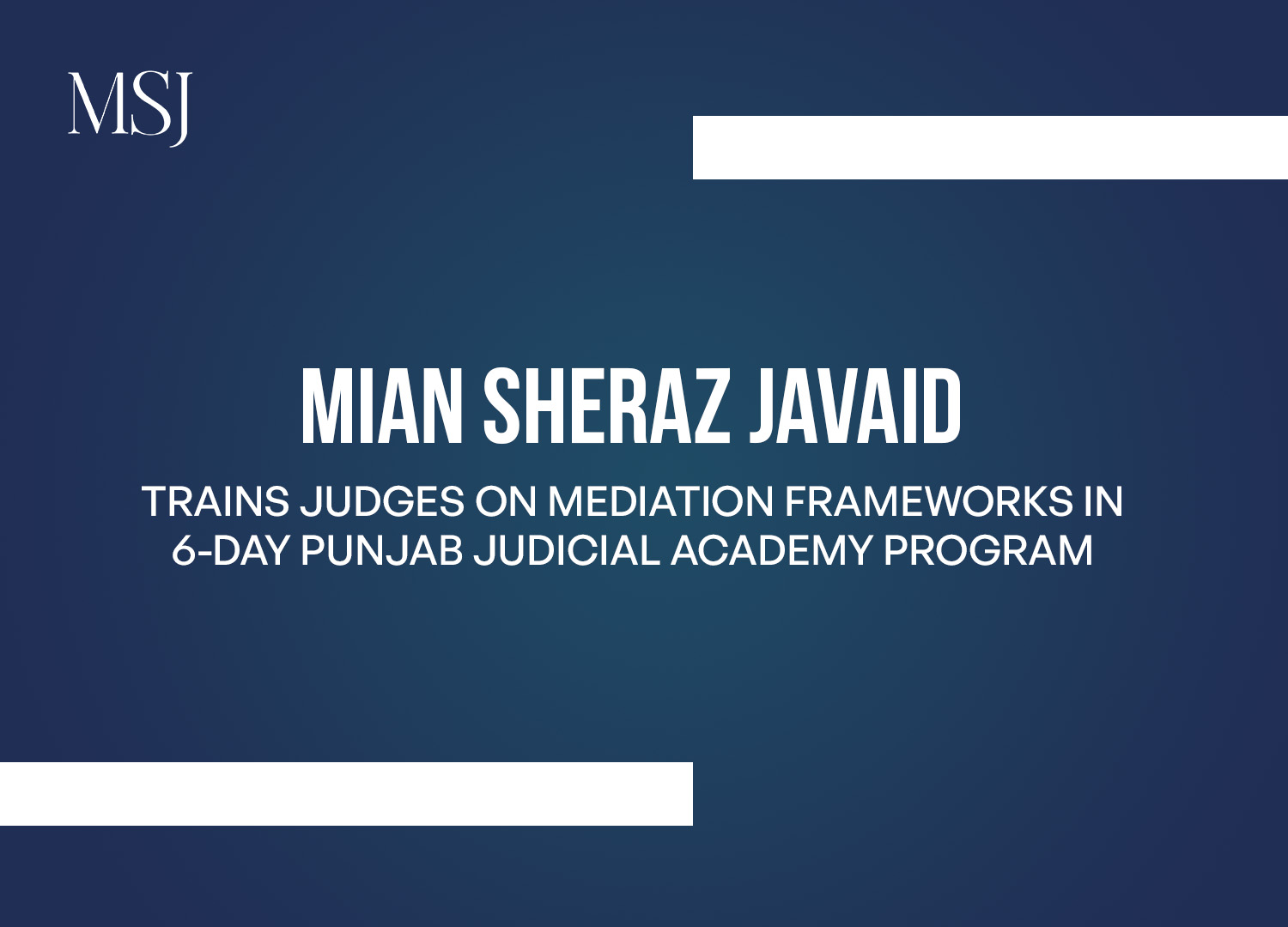Mian Sheraz Javaid Trains Judiciary on ADR at Punjab Judicial Academy
In an effort to advance judicial efficiency and improve access to justice, Mian Sheraz Javaid conducted a highly anticipated training session at the Punjab Judicial Academy as part of the prestigious Two Weeks Performance Evaluation Training Program 2025. The session was attended by senior civil judges-cum-judicial magistrates and civil judges-cum-judicial magistrates from across the region.
The training, which focused on the pivotal role of Alternative Dispute Resolution (ADR) in the judicial process, emphasized how ADR can help reduce case backlogs and offer more efficient resolutions outside the traditional court setting. Mian Sheraz Javaid, a seasoned legal expert and advocate for ADR, led the discussions and shared his extensive knowledge of ADR techniques such as arbitration, mediation, conciliation, and negotiation. These methodologies were explored in-depth to understand their practical applications in different legal contexts and their potential in improving the overall judicial system.
Understanding ADR and Its Benefits
Mian Sheraz Javaid began the session by delving into the fundamental principles of ADR, which is designed to provide alternative methods to resolve disputes without resorting to litigation. The various forms of ADR—such as arbitration, mediation, conciliation, and negotiation—were discussed in great detail, allowing the participants to grasp how each method can be applied in various situations.
A significant part of the conversation centered on the judiciary's critical role in promoting a pro-ADR culture. Sheraz stressed how judicial officers are not just neutral arbiters but active participants in fostering the development of public policy through their rulings. He highlighted the importance of judges identifying cases that are suitable for mediation and ensuring that the mediation process maintains procedural fairness while balancing judicial supervision with party autonomy in arbitration settings.
Sheraz acknowledged the challenges that many judicial officers face, such as judicial hesitation, a lack of ADR awareness, and institutional barriers. He emphasized the need to overcome these hurdles and shared practical strategies that judges could implement in their own courts. By promoting ADR and helping the public understand its benefits, judicial officers can significantly contribute to improving the overall legal landscape in Pakistan.
Learning from International Precedents
The session was enriched by the inclusion of real-world case studies. Sheraz referenced international cases, such as the Churchill case, which demonstrated how ADR mechanisms were successfully utilized in other jurisdictions like the United Kingdom. These case studies not only highlighted best practices but also illustrated how a pro-ADR attitude could be adopted by judges and integrated into the legal system.
One key takeaway from this section was the importance of learning from judicial precedents. By examining global trends in ADR, judges can gain valuable insights into how ADR is becoming increasingly prominent in legal systems worldwide, and how these models could be adapted to enhance Pakistan's own judicial processes.
Legal Framework Governing ADR in Pakistan
The session also provided an in-depth review of the legal framework governing ADR in Pakistan. Sheraz outlined key legislative reforms that have shaped the country’s ADR landscape, helping to lay the groundwork for a more robust and effective dispute resolution system. Among the critical laws discussed were:
- Code of Civil Procedure (Amendment) Act, 2019 & 2023
- The Alternative Dispute Resolution Act, 2017 (Act No. VIII of 2017)
- The Punjab Alternative Dispute Resolution Act, 2019 (Act III of 2019) (Amended in 2023)
- The Khyber Pakhtunkhwa Alternative Dispute Resolution Act, 2020 (Act No. XVIII of 2020)
- Punjab Court-Annexed Mediation Centers Initiative (2016)
These reforms were reviewed in the context of how they help integrate ADR into the judicial system. Sheraz stressed that judicial officers must be well-versed in these laws to ensure effective implementation, noting that without proper training and specialization, ADR mechanisms may fail to meet their potential. The discussion served as a reminder that legal professionals need continuous education on these evolving laws in order to navigate them effectively in practice.
Enhancing ADR Through Judicial Training
A central theme of the session was the importance of judicial training in advancing ADR practices. The session concluded with an interactive discussion, in which attendees engaged in thought-provoking dialogue about strengthening ADR mechanisms within Pakistan’s judiciary. Mian Sheraz Javaid encouraged the participants to adopt a shift in mindset—from a litigation-first approach to an ADR-first approach.
Sheraz underscored the role that judges could play in modernizing dispute resolution by promoting mediation over traditional litigation. He pointed out that such a shift is crucial not only for modernizing Pakistan’s legal system but also for addressing the growing backlog of cases in the courts. Mediation, in particular, was highlighted as an effective tool in alleviating the burden on the judicial system and providing quicker, more satisfactory outcomes for all parties involved.
The judges in attendance actively participated in the discussion, sharing their insights and experiences on how ADR could be more widely adopted within their courts. The dialogue centered on strategies to promote ADR among the public and how to make it an accessible and widely accepted form of dispute resolution.
Moving Forward: A Pro-ADR Judicial System
As the session drew to a close, Mian Sheraz Javaid expressed his optimism for the future of ADR in Pakistan. He reaffirmed that, with continued education and effort, the judicial system can successfully integrate ADR into its daily practices. He emphasized that judicial officers, by embracing ADR, can play a crucial role in transforming Pakistan’s legal landscape into one that is more accessible, efficient, and fair for all.
Mian Sheraz Javaid’s session at the Punjab Judicial Academy was a vital step toward advancing the practice of ADR in Pakistan, and it highlighted the importance of judicial education in shaping a more effective legal system. With the continued support of initiatives like these, ADR can become a central feature of the country’s judicial process, ensuring that justice is not only done but is seen to be done efficiently and fairly.











